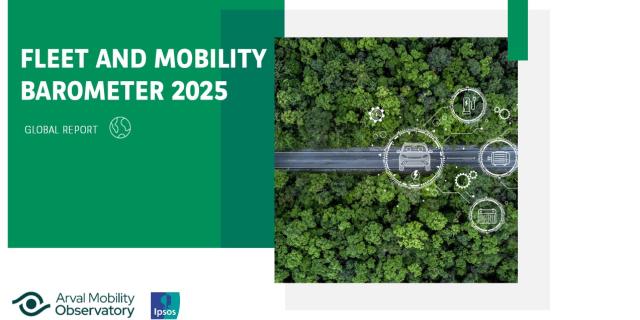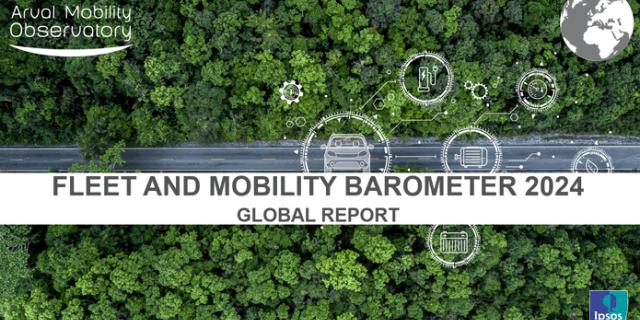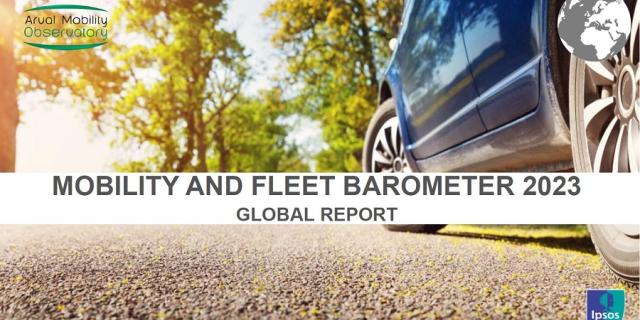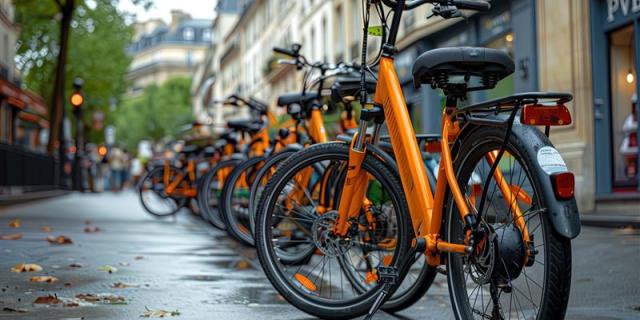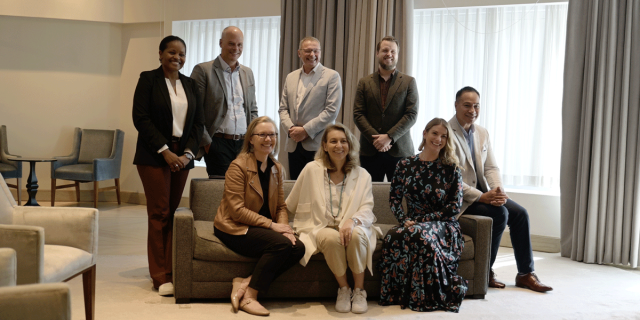LAUNCH OF A PAYMENT INNOVATION HUB
Leading companies in various industries join forces to address the challenges posed by emerging consumer habits.
CaixaBank, Global Payments, Samsung, Visa and Arval set up an innovation hub to create the payment methods of tomorrow
• 5 million euros will be invested in the Barcelona-based Payment Innovation Hub, which will have a dedicated multidisciplinary team and a facility designed to be conducive to brainstorming, creativity, and shared innovation.
• The new hub will allow the partners to jointly develop innovative payment solutions and new purchase experiences that harness emergent technologies and cater to new social trends.
Barcelona, 30 March, 2017
CaixaBank, Global Payments Inc., Visa, Samsung and Arval have joined forces to set up the Payment Innovation Hub, Spain's first innovation hub for commerce and payment methods. The hub is among the first where multiple industry leaders from around the world will research and develop innovative payment solutions together.
The project was announced today in Barcelona at an event attended by Juan Alcaraz, Chairman of CaixaBank Payments and Managing Director of CaixaBank; Frank Young, Senior Vice President, Global Product and Innovation of Global Payments; Nathalie Oestmann, head of Samsung Pay Europe; Mark Antipof, Chief Officer Customer Engagement of Visa Europe; and Christophe Conegero, New Business General Manager of Arval.
The objective behind the Payment Innovation Hub is to present society with the best possible user experiences in purchases and commerce, both online and offline. The centre, which will be located in Barcelona, will specialise in research into new commerce solutions to cater to emergent consumer habits.
By setting up the hub, these partners will work together on projects to generate synergies and promote co-creation and learning, building on their experience at the forefront of innovation in their respective industries. The hub will also be open to collaboration with third party research companies (start-ups, SMEs and major corporations) and institutions, in order to jointly shape the payment technology solutions of tomorrow.
Investments of 5 million euros have been earmarked over the next 3 years to get the hub up and running.
A multipurpose space for a multidisciplinary team
A dedicated and multidisciplinary R&D team will operate at the Payment Innovation Hub, combining purely tech professionals with specialists in market analysis, business development and marketing. Any other partners deemed necessary may also be brought in for specific projects, whether these be individuals or start-ups.
Three areas of research have been identified:
• Automobiles: Research into solutions for connected cars.
• Home: Innovation for domestic applications, particularly regarding the Internet of Things (IoT).
• Commerce: Projects aimed at driving the shopping experience, both online and at brickand-mortar stores.
A space designed for innovation
The hub will have its own custom designed offices, conceived as a space conducive to brainstorming, creativity and shared innovation, with all the infrastructure and resources that these require.
The office will be comprised of meeting rooms and workspaces. The innovation lab will be the hub’s nerve centre, where projects will be put through their paces in conditions that simulate real life situations. The facility will be equipped with all the tools required to measure technological behaviour, usability, and customer response.
The Payment Innovation Hub will also feature a space for outreach and training, which will include conference rooms and host regular masterclasses, as well as an area dedicated to showcasing and testing the latest technological developments.
Industry leaders come together to work as a team
The aim is to build and establish a world-leading hub of innovation in payment technology solutions. Indeed, the partner companies behind the initiative are among the most innovative anywhere in the world in their areas of specialisation.
CaixaBank is the Spanish market leader in payment methods, with 15.3 million cards in circulation, a market share by turnover of 23.1%, and more than 335,000 POS terminals deployed, of which 90% are contactless. In 2016 CaixaBank cards recorded turnover at merchants of 33.457 billion euros (up 14.3% against 2015), and 5.196 billion euros in online purchases.
Furthermore, via its subsidiary Comercia Global Payments, CaixaBank has a market share of close to 27% in POS terminals.
In 2016 the number of transactions at merchants using the bank’s POS terminals grew 17%, standing at 1.119 billion operations, with turnover of 40.881 billion euros, up 14% against 2015.
CaixaBank has garnered international accolades in recent years for being the first bank in the world to implement certain key innovation initiatives in payment methods. Its engagement with innovation dates back to the late 70s and early 80s when the first ATMs and cards were deployed in Spain.
Such projects include the bank’s partnership with Visa in one of Europe’s first commercial rollouts of contactless systems. CaixaBank now has more than 9.5 million contactless cards in circulation, which posted turnover of 7.123 billion in 2016. The system’s success has paved the way for other pioneering projects, such as the Visa contactless wristband, a wearable device that allows users to carry their debit or credit cards at their wrist. The bank was also one of the first in Europe to launch mobile payments and among the first anywhere in the world to strike a deal with Samsung to support the Samsung Pay mobile payment service.
Global Payments Inc. (NYSE: GPN) is a leading worldwide provider of payment technology services that delivers innovative solutions driven by customer needs globally. Headquartered in Atlanta, Georgia with more than 8,500 employees worldwide, Global Payments is a member of the S&P 500 with nearly 2.5 million merchant locations, close to 11 billion transactions processed and $550B in volume settled. The company is present in 30 countries throughout North America, Europe, the Asia-pacific region and Brazil.
With nearly 50 years of expertise, Global Payments’ broad range of payment solutions support a variety of in-person, online, and mobile business needs. Global Payments has been a leader in developing mobile contactless solutions like SamsungPay and in piloting the innovative solutions that turn a Samsung smartphone into a payment acceptance device in partnership with Visa. Global Payments is focused on providing next generation commerce solutions, and our market leading software assets provide payment services to a wide variety of industries including restaurants education, gaming and ecommerce verticals, as we align with CaixaBank to serve the needs of customers in Spain and across Europe.
The Samsung Pay mobile payment system is well known for its ease of use, security and availability, and is supported at any establishment that accepts contactless payment. To complete a transaction with Samsung Pay, users simply need to slide up on their compatible smartphone and scan their fingerprint to pay.
For some months Samsung Pay has also supported loyalty cards, giving users easy and direct access to partner programs (stores, service stations, car parks, and so on), where they will find exclusive offers, discounts or could win prizes, all via any compatible Samsung Galaxy smartphone. Samsung Pay is built on a vast ecosystem of international partnerships and supports credit and debit cards from more than 500 major international and regional banks.
Visa operates the world’s largest retail payments network and has helped to transform commerce for nearly 60 years, providing merchants and consumers with a convenient and secure way to pay and be paid. Today, as the payments industry shifts from plastic to digital and new entrants join traditional stakeholders in payments, Visa’s mission is to ensure that every Internet-connected device, appliance or wearable can become a secure place for commerce, regardless of where they are and what device they are using.
In Europe, Visa is helping to advance this mission through a number of its own recent initiatives. In February 2017, the Visa Innovation Center London opened, based in Paddington Basin and the largest of Visa’s global network of innovation centres. It offers Visa and its clients and partners a dedicated area to engage, experience and collaborate using the Visa Developer Platform, which provides self-serve access to some of Visa’s most popular payment capabilities. The Payment Innovation Hub will offer yet another opportunity for Visa to collaborate with industry leaders on concepts and solutions that are at the forefront of today’s payment innovation.
Visa also announced the extension of mobile payments into more than 12 European countries by end of 2017 through the Visa Token Service. Pioneered by Visa in 2015, the Visa Token Service is the technology that underpins popular mobile payment services including Apple Pay and Android Pay, providing consumers a secure way to load and access their payment account on a mobile device. The technology sits at the heart of Visa’s IoT (Internet of Things) vision, enabling secure and convenient commerce on any connected device, such as phones, tablets, wearable devices, even automobiles and appliances.
As one of the world’s foremost operators in mobility solutions, and part of the BNP Paribas Group, Arval has always been committed to sustainable mobility and forward-looking use of digital environments, harnessing innovative technology.
The spirit of innovation and enterprise is built into Arval’s DNA. As such, in 2013 Arval began developing a proprietary and comprehensive telematic solution, called Arval Active Link, which was subsequently launched in 2015, putting trailblazing technology at the service of clients and prospective clients, and delivering concrete solutions to social and environmental trends.
This first foray into connectivity and innovation is paving the way to the mobility solutions of tomorrow. A wide range of initiatives are in progress, seeking to refresh and update existing tools, while also building new promising solutions and services for clients and prospective clients. This work is already ongoing, but exploring new horizons is always best performed in partnership with leading businesses in their respective markets, allowing us to share perspectives and learn from each other, while gaining insights into and shaping the mobility of tomorrow.
The robust relationship between CaixaBank and Arval is a powerful example of this, after the two joined forces in 2011 to offer a vehicle rentals solution that proved a great success.
Arval’s strategy and investments are consistent with the emphasis placed on digital transformation as envisaged in the BNP Paribas business development plan.
The combination of these two aspects makes Arval a natural partner for this new innovation centre, providing the opportunity to work with 4 major players and to drive discovery, experience and learning.
Arval specialises in mobility solutions and is a fully owned subsidiary of BNP Paribas. Arval provides comprehensive solutions to major corporations, SMEs and professionals, helping them to optimise workforce mobility and outsource the risks associated with fleet management, while benefitting from expert advice and outstanding service quality. The company has a workforce in excess of 6,400 and operates in 28 countries, with a total leased fleet of 1,028,142 vehicles in Europe, establishing itself as the European market leader (December 2016).
Arval is a founding member of the Element-Arval Global Alliance, the largest strategic partnership in the fleet management industry, and the world leader with 3 million vehicles in 50 countries. Within BNP Paribas, Arval belongs to the retail banking core activity.
Arval has been operational in Spain since 1996, where it employs more than 500 people. In excess of 89,000 vehicles are currently leased in Spain, making it the leading operator in the country. The company has been awarded ISO 14001 and 39001 certifications in Spain.




